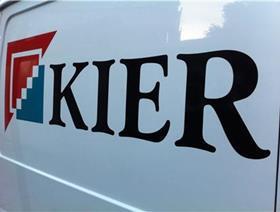Firm and subcontractor sentenced after groundwater was polluted during redevelopment
Kier and its subcontractor BKP Waste Recycling Limited (BKP) have been ordered to pay more than £180,000 in fines and costs for polluting groundwater at a hospital redevelopment with 11,000 litres of diesel.
In February 2012, Kier was appointed by The Royal Bournemouth and Christchurch Hospitals NHS Foundations Trust to carry out redevelopment work at the Christchurch Hospital in Dorset. Kier then appointed BKP to drain and remove oil from a supply line in the hospital grounds.
But oil escaped from what the Environment Agency labelled a “poorly-made connection in the oil supply pipework”, which failed during routine testing of heating systems in November 2014, with the spillage polluted groundwater.
The case was brought by the agency at the end of an investigation that uncovered what it said was negligence on the part of both contractors.
Both firms were sentenced at Bournemouth Crown Court after earlier pleading guilty to an offence under the Environmental Permitting (England and Wales) Regulations 2010.
Kier was fined £100,000 with £30,301 costs for causing groundwater activity under regulation 38 (1) (a). BKP was fined £10,200 for the same offence with £42,851 costs.
Ian Withers of the Environment Agency said: “This pollution incident had the potential to cause serious harm to the environment and was entirely avoidable. The 2 companies failed to understand the extent of the work required and mitigate the risks.
“Construction companies must adhere to environmental permitting regulations to prevent their activities from affecting the local environment.”
A Kier spokesperson said “We confirm that Kier has been fined at Bournemouth Crown Court in relation to an incident that occurred during 2014.
“Kier is fully committed to achieving high standards of environmental protection and regrets that on this occasion those high standards were not met. We continue to work collaboratively with our supply chain to strive for improvement in environmental standards and develop new ways of working.”




























No comments yet